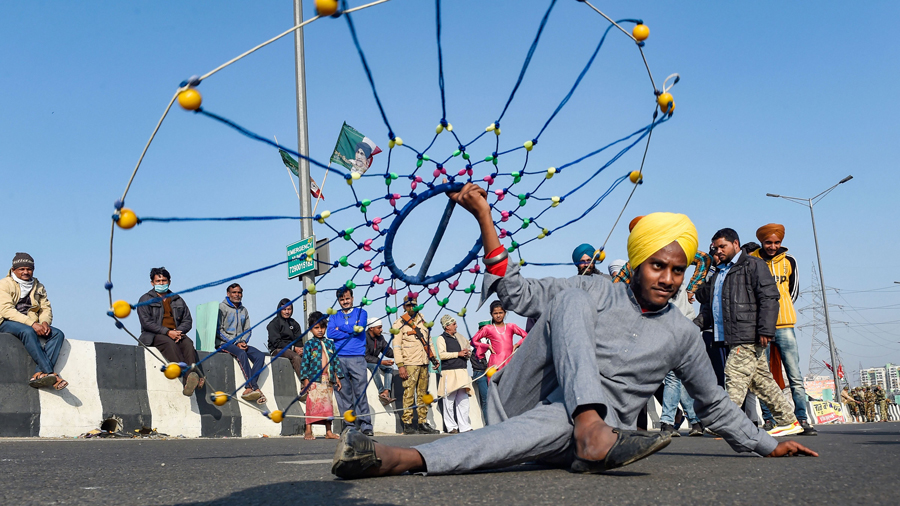
Epic markers :The return of the Mahabharata

Indeed, the confrontation between the farmers and the government has an epic scale.
The Mahabharata was set in times that witnessed the historic transition of society from pastoralism to agriculture. The current confrontation is set in times when society is witnessing a shift from a responsible democratic State to the crony-capitalism of an authoritarian government. All that the Pandavas were asking for was their right over Hastinapur. All that the farmers are asking for is the repeal of the recent agriculture related Acts. Their argument is that if the government does not provide the minimum support price for their production, they would be rendered vulnerable to the vagaries of the open market. Those of our countrymen who are not directly connected with agriculture as a profession tend to think that if other sectors such as banking, insurance, healthcare and education have already been handed over to private players, why not agriculture? Every day, so many economists have been asking this question in television debates. The logic in this question is flawless, but the understanding of the issue is deeply flawed. The agrarian society is not ‘a sector’; it is a distinct civilization, particularly in the case of India, Iran and Egypt. These are countries, which in ancient times gave birth to distinct civilizations because they had moved from pastoralism to agriculture. Indian farmers are, if described from a comprehensive historical perspective, the true makers of India. The nation did not create Indian farmers; the farmers here created the Indian nation. Farming is not just an occupation or a livelihood but much more. It is the very basis of the village-systems, which, despite their serious drawbacks, provide Indian society its resilience and tolerance. Hence, when they are pauperized, left in a deep debt trap and forced to commit suicide, the legislators and economic planners should not look at them merely as an economic liability.
True to its characteristic habit of propaganda, the regime made it appear that the farmers’ agitation is fuelled by the separatists and by Opposition parties. The genuine concerns of farmers were sidelined and ridiculed. Many government spokespersons question why farmers should insist on getting more than what they are already getting in the form of cheap electricity and subsidized fertilizers. It is not the government that is subsidizing the farmers but it is the farmers who subsidize the nation by not demanding pension, old age allowance, annual increments and LTA. They are only asking for a guarantee that their production gets a reasonable and a minimum price.
Elaborate war-time debates form a feature of epic poems. There have been many debates within the Mahabharata as to why the war that destroyed everybody could not be prevented in the first place. Many of those discussions point to the greed, contempt and anger of Duryodhana and to his father’s turning (literally) a blind eye to evil. The ancient Mahabharata provided an occasion for a metaphysical text like the Gita. Anger towards all those who hold divergent views and contempt for constitutional norms have been the unmistakable features of the present regime. The Constitution assures us that India is and will continue to be a democracy. The directive principles in it are clear about the direction in which the State policies ought to move. Let us hope that the epic agitation by India’s farmers provides the regime with a desire to think of the constitutional norms and Bharat does not have to go through a Mahabharata-like destruction for defending democracy.

0 Response to "Epic markers :The return of the Mahabharata"
Post a Comment
Disclaimer Note:
The views expressed in the articles published here are solely those of the author and do not necessarily reflect the official policy, position, or perspective of Kalimpong News or KalimNews. Kalimpong News and KalimNews disclaim all liability for the published or posted articles, news, and information and assume no responsibility for the accuracy or validity of the content.
Kalimpong News is a non-profit online news platform managed by KalimNews and operated under the Kalimpong Press Club.
Comment Policy:
We encourage respectful and constructive discussions. Please ensure decency while commenting and register with your email ID to participate.
Note: only a member of this blog may post a comment.